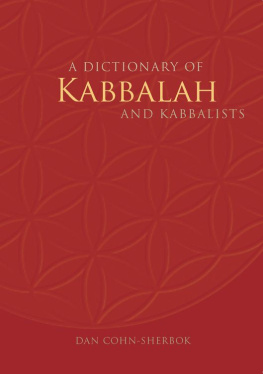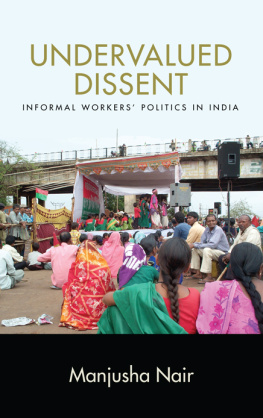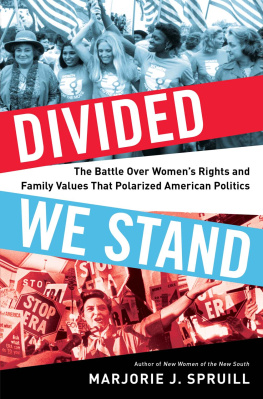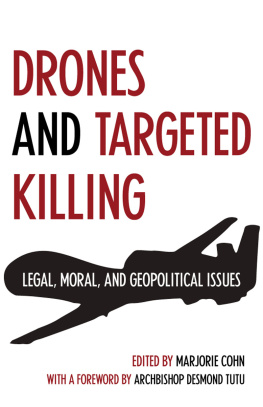Cohn Marjorie - Rules of disengagement the politics and honor of military dissent
Here you can read online Cohn Marjorie - Rules of disengagement the politics and honor of military dissent full text of the book (entire story) in english for free. Download pdf and epub, get meaning, cover and reviews about this ebook. City: Sausalito;Calif;United States, year: 2009, publisher: NYU Press;PoliPoint Press, genre: Politics. Description of the work, (preface) as well as reviews are available. Best literature library LitArk.com created for fans of good reading and offers a wide selection of genres:
Romance novel
Science fiction
Adventure
Detective
Science
History
Home and family
Prose
Art
Politics
Computer
Non-fiction
Religion
Business
Children
Humor
Choose a favorite category and find really read worthwhile books. Enjoy immersion in the world of imagination, feel the emotions of the characters or learn something new for yourself, make an fascinating discovery.

- Book:Rules of disengagement the politics and honor of military dissent
- Author:
- Publisher:NYU Press;PoliPoint Press
- Genre:
- Year:2009
- City:Sausalito;Calif;United States
- Rating:5 / 5
- Favourites:Add to favourites
- Your mark:
- 100
- 1
- 2
- 3
- 4
- 5
Rules of disengagement the politics and honor of military dissent: summary, description and annotation
We offer to read an annotation, description, summary or preface (depends on what the author of the book "Rules of disengagement the politics and honor of military dissent" wrote himself). If you haven't found the necessary information about the book — write in the comments, we will try to find it.
Cohn Marjorie: author's other books
Who wrote Rules of disengagement the politics and honor of military dissent? Find out the surname, the name of the author of the book and a list of all author's works by series.
Rules of disengagement the politics and honor of military dissent — read online for free the complete book (whole text) full work
Below is the text of the book, divided by pages. System saving the place of the last page read, allows you to conveniently read the book "Rules of disengagement the politics and honor of military dissent" online for free, without having to search again every time where you left off. Put a bookmark, and you can go to the page where you finished reading at any time.
Font size:
Interval:
Bookmark:
Thank you for buying this ebook, published by NYU Press.
Sign up for our e-newsletters to receive information about forthcoming books, special discounts, and more!
Sign Up!
A publisher of original scholarship since its founding in 1916, New York University Press Produces more than 100 new books each year, with a backlist of 3,000 titles in print. Working across the humanities and social sciences, NYU Press has award-winning lists in sociology, law, cultural and American studies, religion, American history, anthropology, politics, criminology, media and communication, literary studies, and psychology.
RULES OF DISENGAGEMENT
The Politics and Honor of Military Dissent
MARJORIE COHN and KATHLEEN GILBERD
Rules of Disengagement: The Politics and Honor of Military Dissent
Copyright 2009 by Marjorie Cohn and Kathleen Gilberd
All rights reserved, including the right to reproduction in whole, in part, or in any form.
13 12 11 10 09 1 2 3 4 5
Library of Congress Cataloging-in-Publication Data
Cohn, Marjorie, 1948
Rules of disengagement : the politics and honor of military dissent / Marjorie Cohn and Kathleen Gilberd.
p. cm.
Includes index.
ISBN
1. Conscientious objectionUnited States.
2. Military ethicsUnited States.
3. WarMoral and ethical aspectsUnited States.
4. Vietnam War, 19611975Moral and ethical aspects.
5. Afghan War, 2001Moral and ethical aspects.
6. Iraq War, 2003Moral and ethical aspects.
7. SoldiersLegal status, laws, etc.United States.
I. Gilberd, Kathleen. II. Title.
U22.C542 2009
172.42dc22 2009004870
To my father, Leonard Cohn,
and my husband, Jerry Wallingford,
both veterans for peace
MC
To Terry Christian, whose compassion
and lifelong commitment to activism
continue to inspire
KG
RULES OF ENGAGEMENT limit forms of combat, levels of force, and legitimate enemy targets, defining what is legal in warfare and what is not. In the modern world, the rules of engagement are defined by an established body of international law and, for American soldiers, by U.S. law as well.
When the government at the highest levels ignores these rules, when the conduct of a war and the war itself violate the law, as happened in Vietnam and is now happening in Iraq and Afghanistan, soldiers are forced into a legal and ethical dilemma. They must decide whether to abide by law and conscienceknowing the government does notor to follow orders without regard to the law.
Rules of Disengagement examines the legal and moral questions posed by these wars through the eyes of American soldiers, showing the effects the wars have had on the soldiers lives and those of their families. Chapters 1 and 2 address the legality and morality of the Iraq and Afghanistan wars in the words of soldiers and sailors who oppose those conflicts. Chapter 3 examines the recent Winter Soldier Investigation, where veterans and service members testified about extensive violations of the rules of engagement in both theaters of combat. In each chapter, we explore the frightening parallels to the war in Vietnam, again using the words and experiences of veterans of that war.
Chapters 5 through 7 and Chapter 9 analyze the relationship between the military missionthe conduct of these illegal warsand the conditions under which soldiers live and serve. They discuss the effect of illegal warfare on such concrete matters as medical care, racial discrimination, and violence against women in the military, and they examine frightening similarities to soldiers experiences during the Vietnam War. Chapter 9 considers briefly the effects of the wars on military families and the ways in which families, too, have fought back. In Chapter 4 and again in Chapter 8, we describe the ways soldiers have chosen to disengage from these wars, and we discuss their rights under military law and regulations. That practical discussion appears throughout the book, because our work with service members has shown us that GIs are not just asking questionsthey are also looking for practical ways to address their concerns.
Many parallels are discernible between the war in Vietnam and the wars in Iraq and Afghanistan. During the Vietnam War, American troops operated in free-fire zones. John Kerry told Congress in 1971, We learned the meaning of free-fire zones, shooting anything that moves, and we watched while America placed a cheapness on the lives of Orientals.
Veterans of the Iraq war testified at the March 2008 Winter Soldier hearings that they were subject to vague and ever-changing rules of engagementoften free-fire zones. This vagueness led to confusion and the commission of atrocities, many of which would constitute war crimes in violation of the Geneva Conventions and the U.S. War Crimes Act.taught to think of all Vietnamese as the enemy, troops in Iraq and Afghanistan have been trained to consider all Iraqis and Afghanis as the enemy. This indoctrination has led to massive civilian casualties.
Service members who fought in Vietnam, and recently in Iraq and Afghanistan, have challenged not only the rules under which they operated but also the very propriety of American engagement in those wars. Many have concluded that the wars were illegal because they violated the Charter of the United Nations, a ratified treaty that is part of U.S. law.
Soldiers like Dr. Howard Levy during Vietnam and Pablo Paredes during Operation Iraqi Freedom have raised the Nuremberg defense, which is enshrined in our law and which creates a duty to obey lawful orders and to disobey unlawful orders. An order to fight in an illegal war, they have maintained, is an unlawful order. Other soldiers have professed opposition to all wars and filed for conscientious objector (CO) status. Through these acts of resistance and protest, service members in growing numbers are fighting for disengagementthe disengagement of the U.S. military from Iraq and Afghanistan, their personal disengagement from illegal and immoral orders, and in many cases, their disengagement from the military itself.
Just as soldiers are affected by violations of the rules of engagement by being forced to participate in illegal wars, so the whole military is affected by having to wage such a war. Morale and support for the war affect enlistments and reenlistments. Unable to guarantee a sufficient body of willing combatants, the military presses troops into repeated deployments, using stop-loss policiespresidential orders and implementing regulations that permit the military to keep soldiers on active duty beyond their normal terms of enlisted serviceand a variety of other means to keep soldiers in the field. Unable to convince soldiers that they are defending their country and communities, the military turns to other methods of motivating soldiers, using racism to instill hatred of an enemy, to dehumanize a race and religion, and to define a whole population as the enemy. A deliberate dehumanization of women and demeaning, violent sexual imagery become training tools, methods of motivation, and morale boosters. These methods invariably engender violence against fellow soldiers.
The military as an institution is strained by these illegal wars as well. Illegitimate warfare fractures the militarys infrastructure and organization. The need to return soldiers to combat over and over again forces commands to ignore medical problems until they become crises and to deny support to soldiers and their families. Our national military budget emphasizes weapons systems and benefits private contractors rather than funding medical care and support systems. Everything and everyone suffers when the military is forced to focus resources and energy on maintaining the fiction of legitimate and successful warsno time or resources are available for the military to take care of its own.
Next pageFont size:
Interval:
Bookmark:
Similar books «Rules of disengagement the politics and honor of military dissent»
Look at similar books to Rules of disengagement the politics and honor of military dissent. We have selected literature similar in name and meaning in the hope of providing readers with more options to find new, interesting, not yet read works.
Discussion, reviews of the book Rules of disengagement the politics and honor of military dissent and just readers' own opinions. Leave your comments, write what you think about the work, its meaning or the main characters. Specify what exactly you liked and what you didn't like, and why you think so.









